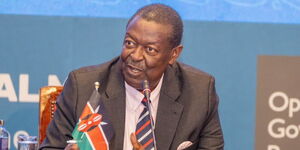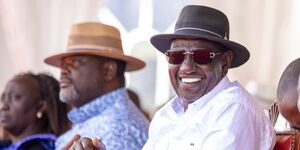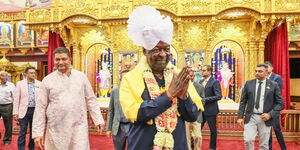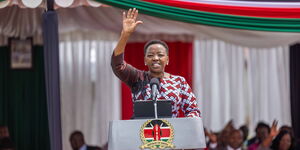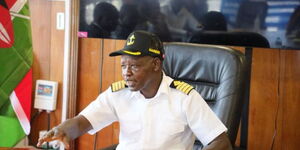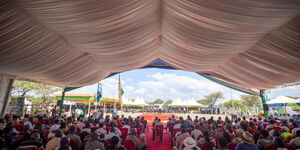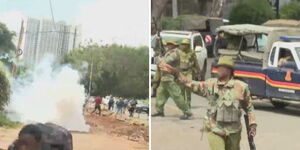President William Ruto has been urged to prioritise national interests over alleged commercial interests that are making Kenya walk on a tightrope over its relations with the United States.
Former Deputy President Rigathi Gachagua challenged Ruto to steer clear of his alleged links with Mohamed ‘Hemedti’ Galgalo of the Rapid Support Forces (RSF) and rethink his shoot-to-the-leg orders on violent protesters, noting that it is making the US wary of having bilateral relations with Kenya.
While speaking during an engagement forum on Wednesday, August 6, Gachagua stated that the plan by the US to review Kenya’s non-NATO ally status was not by mistake and was caused by several factors that were hurting Kenya’s reputation with the global superpower.
Also, Gachagua claimed that Ruto had ties to terrorist groups, alleging the president once met with leaders of Al-Shabaab in Mandera, despite the US having a zero-tolerance policy on terrorist groups.
Further, the former DP tied the alleged links to the directive by Ruto to abolish extra vetting in border areas in the country, such as North Eastern, and its effect on allowing suspected terrorists to be registered as citizens of the country.
“You can not endanger the security of the world because of your business interests. These are things that are on the radar of the American security system,” Gachagua stated.
“You can play around with Kenyans, but you can not play with the American government. They have you on their radar, and the evidence is everywhere,” he added.
Gachagua opined that Ruto’s alleged transgressions with the US made him seek solace in China, another superpower that is arguably the US’s biggest foe.
On Wednesday, August 6, Ruto defended the Kenya-China relations, noting that it was in Kenya’s best interests.
Speaking during a roundtable forum with the private sector, the Head of State exuded confidence in Kenya's diplomatic relations with China, reiterating the government's commitment to continue working with the Asian superpower.
According to him, Kenya’s bilateral ties with China were deep-rooted, and several agreements had already been reached for the mutual good of the two countries.
If Kenya's designation as a major non-NATO ally (MNNA) is revoked, Ruto's government could be set for adverse repercussions, with one of the most significant ones being losing the eligibility for loans of material, supplies, or equipment for cooperative research, development, testing, or evaluation.
Currently, Kenya can easily enter into agreements with the United States for cooperative training on a bilateral or multilateral basis, with the US covering its costs; if the non-NATO ally status is revoked, this privilege would also disappear.
Losing the MNNA status would also hurt Kenya's ability to acquire surplus equipment, as the country is currently eligible for priority delivery under Section 516 of the Foreign Assistance Act.
Kenya is also at risk of losing consideration for the purchase of depleted uranium ammunition, which is crucial for tank armour and projectiles. In addition, Kenya would lose the privilege to bid on contracts for maintenance, repair or overhaul of US Department of Defence equipment outside of the United States.

